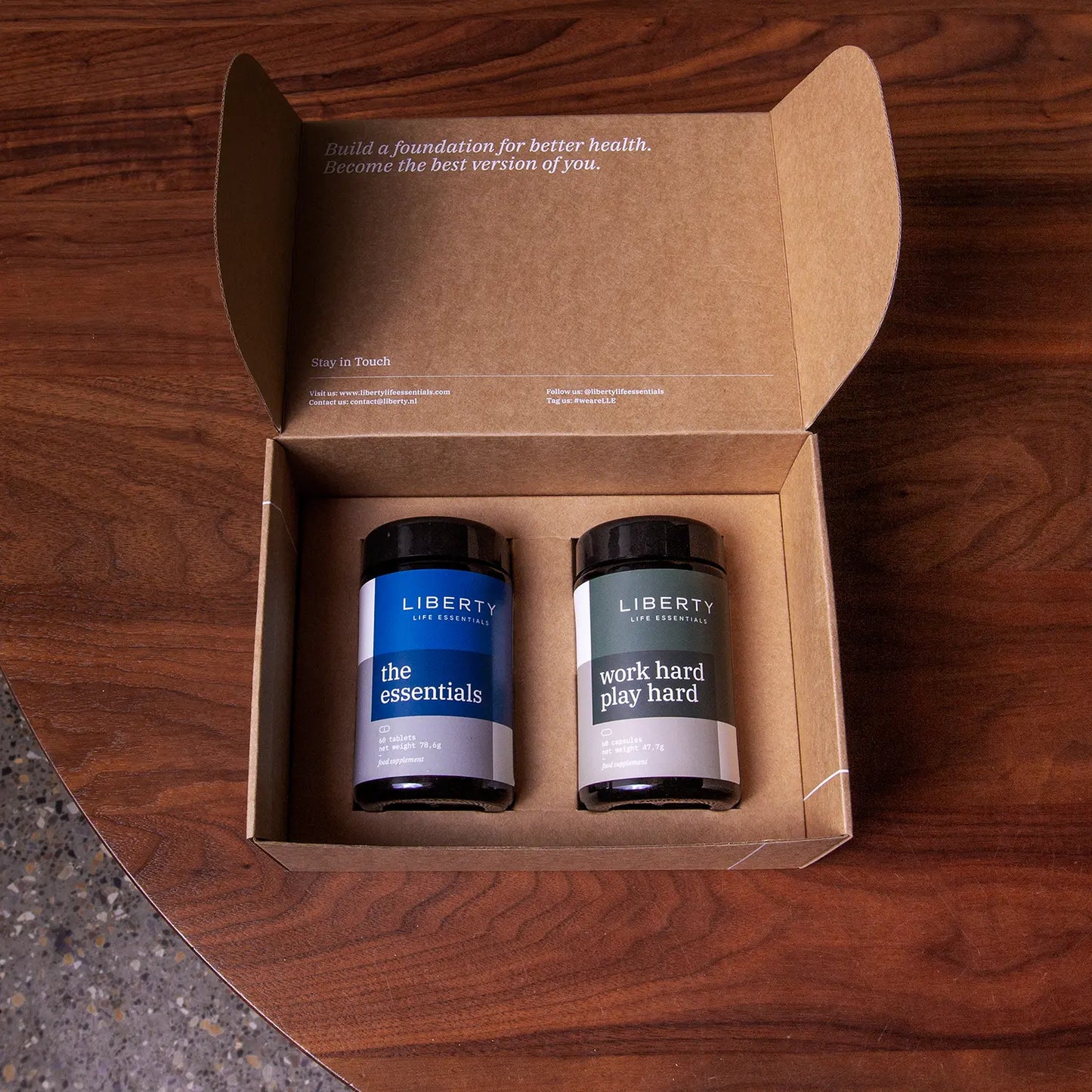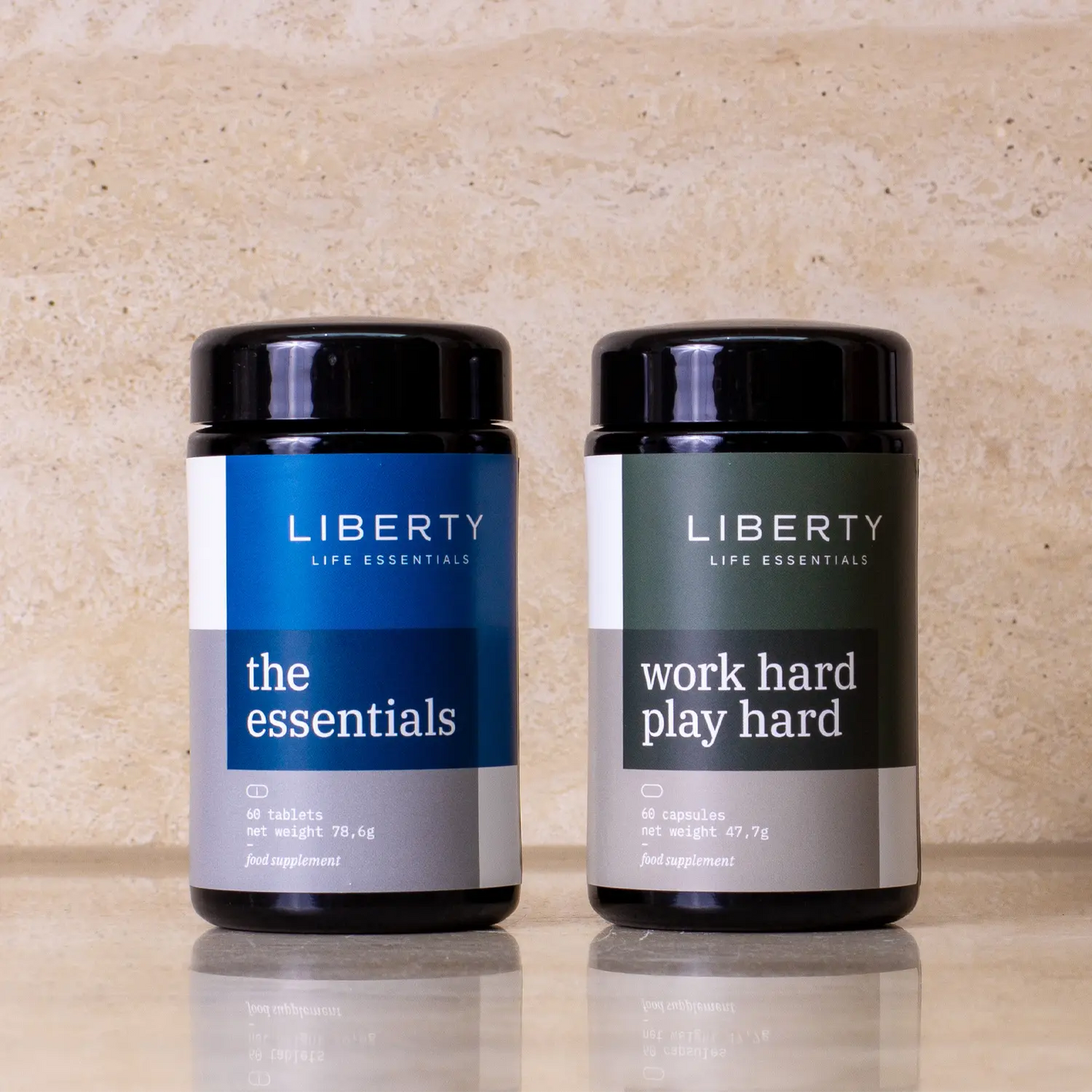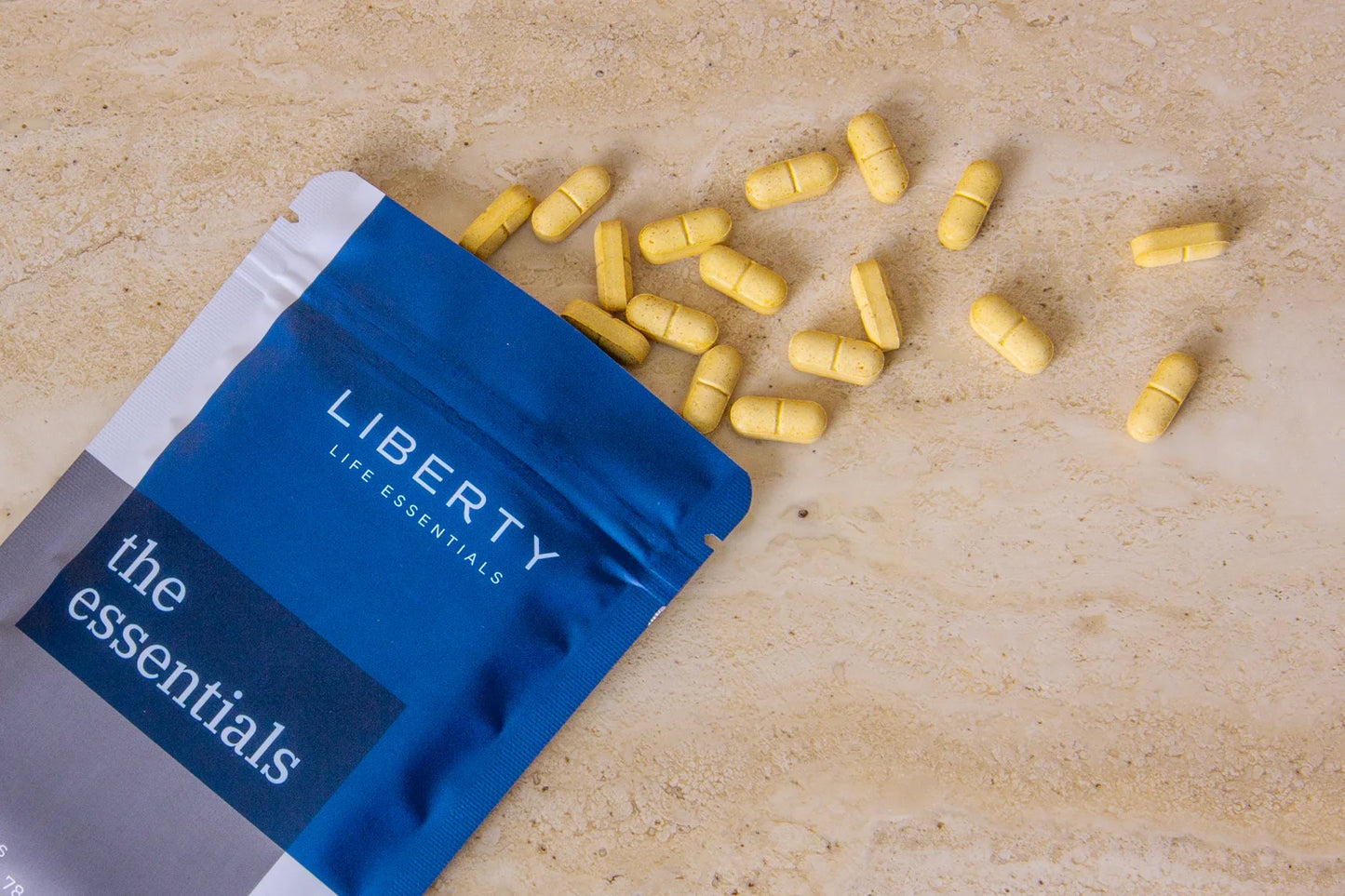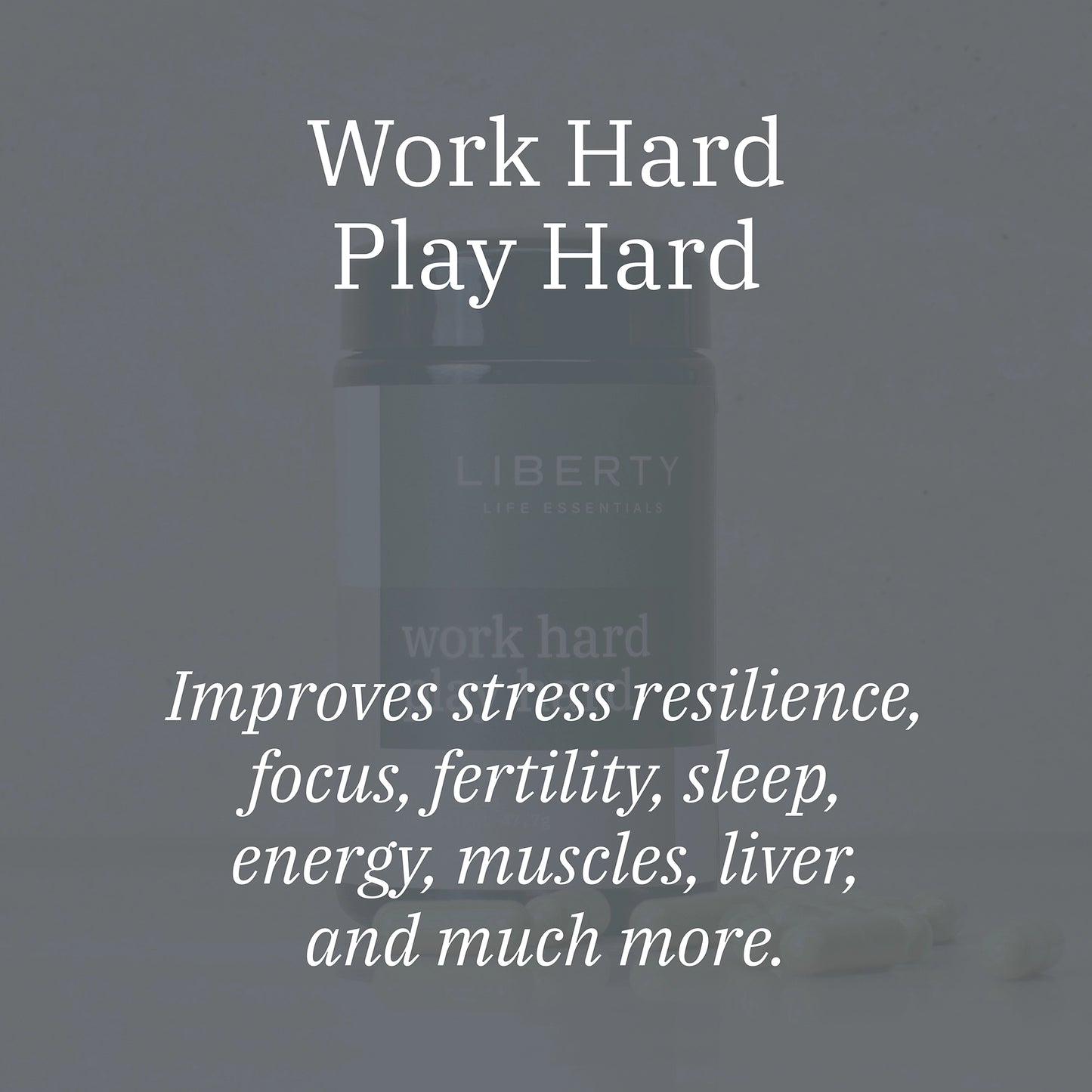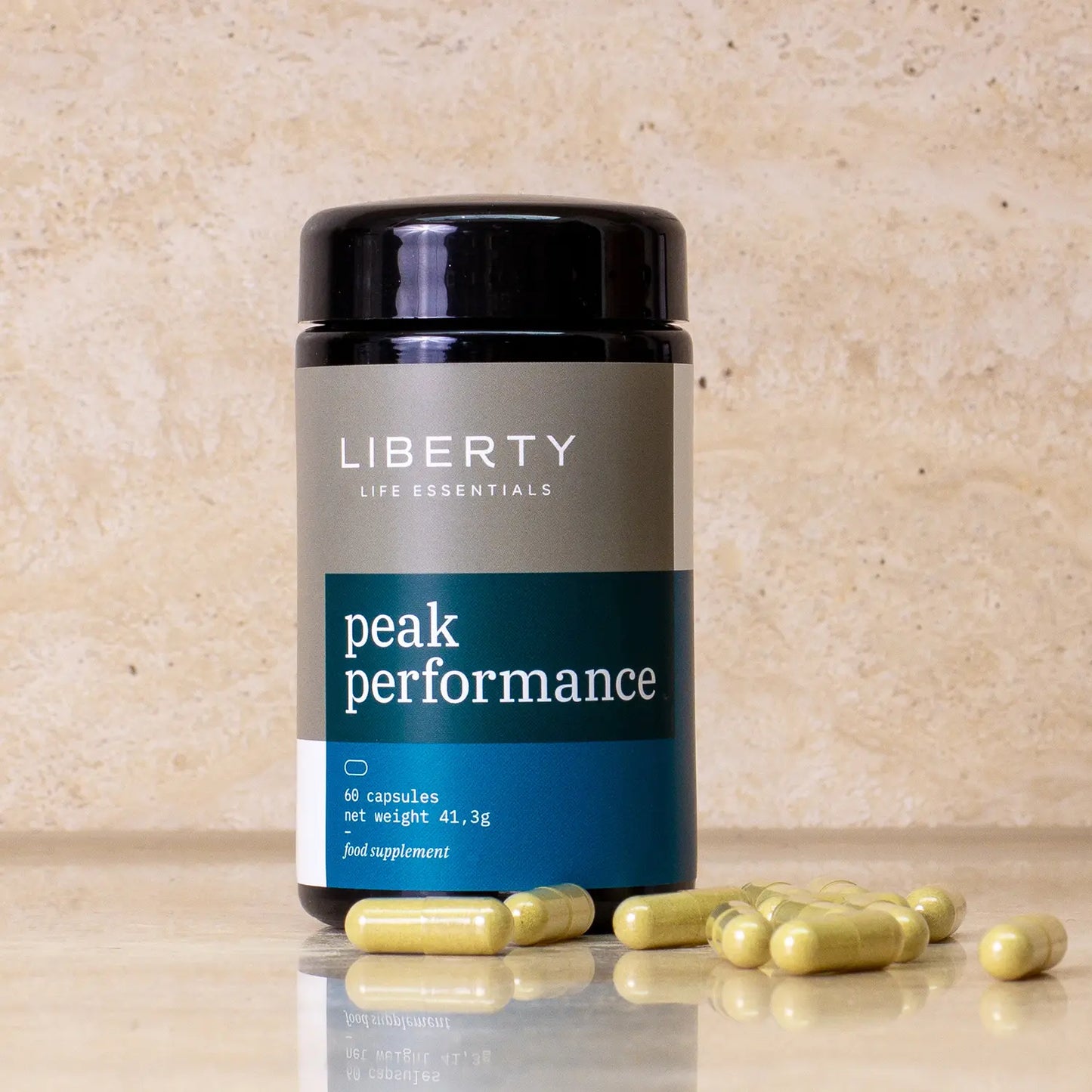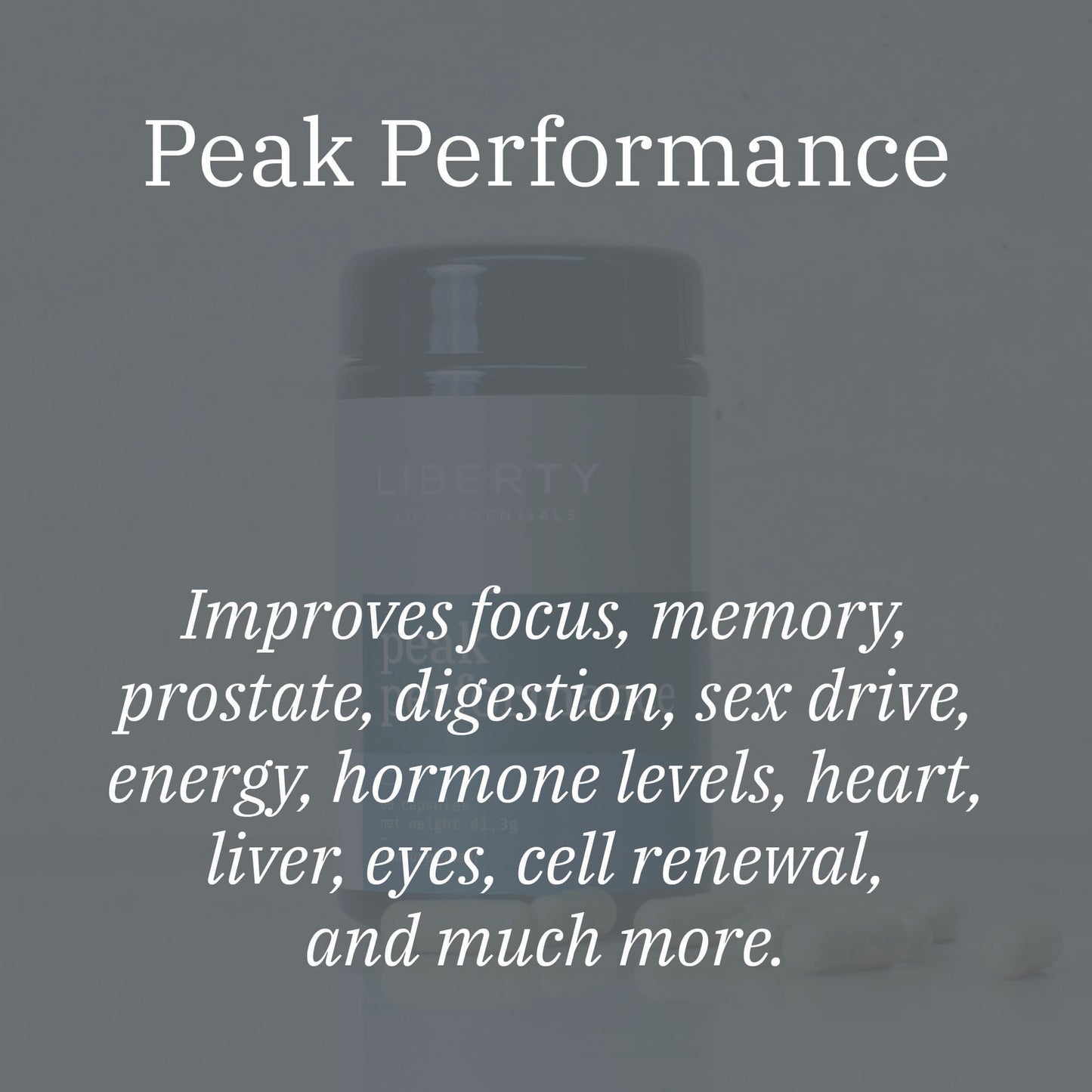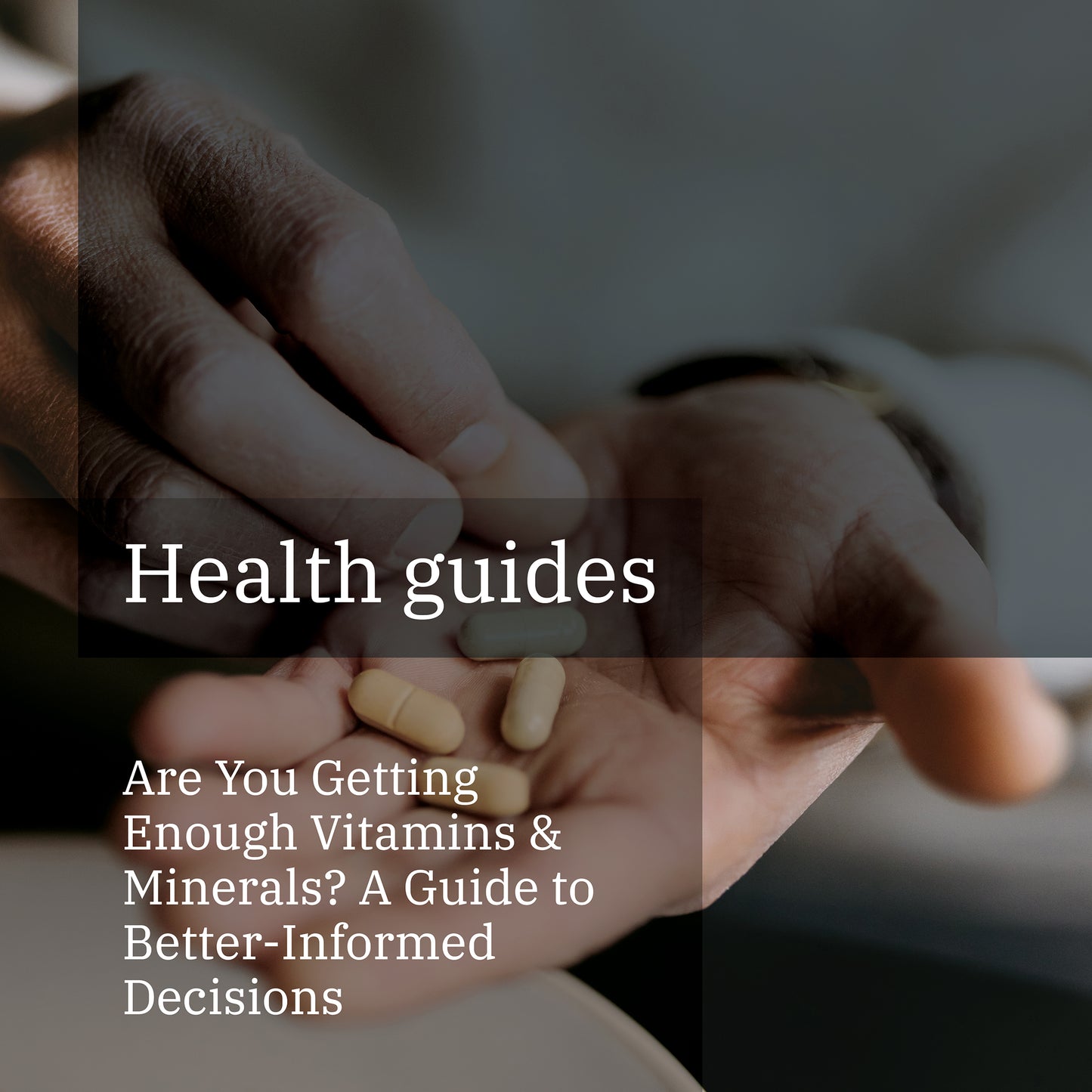
Introduction: Why Knowing Your Vitamin and Mineral Needs Matters
Are we getting enough vitamins and minerals in our daily diet? While many health professionals across Europe suggest that a balanced diet is sufficient, this assumption is too generalized while the reality is more complex. Understanding how much of each nutrient you need can significantly impact your overall health. Whether managing a busy career, balancing a busy social life, or staying fit, being aware of your vitamin and mineral intake helps make informed decisions about your diet and well-being.
Is There Such a Thing as Too Much or Too Little Vitamins and Minerals?
Our bodies rely on vitamins and minerals for basic functions, but imbalances can cause health issues. Too little can lead to chronic deceases and organ failure, while too much can cause toxicity, increasing the risk of organ damage and cancer. It is thus important to stay within the acceptable limits of each nutrient.
How Much Fruit and Vegetables Should You Eat Daily?
The best way to fulfil our nutritional requirements is by consuming fruit and vegetables. The European Union recommends all adults to consume at least 200g of fruit and 200g of vegetables daily, equating to five portions in total. However, many people struggle to meet this goal. For example, in the Netherlands, around 85% of men under 50 fail to eat enough fruit, while 78% fall short on vegetable intake. Busy schedules and limited access to fresh produce make it harder to stick to these recommendations.
Besides not reaching these daily amounts, it can also be debated that one fixed amount for a whole population is too standardized, not taking into account differences in gender, lifestyle and physique. Moreover, some vitamins are produced by our gut microbes, which are highly individualized. meaning diet alone may not always provide the nutrients your body needs.
In short, it's not that straightforward to define the amount of nutrients an individual needs, but we have to start somewhere, for which the Reference Intake was developed.
What Is the Reference Intake?
You've likely noticed percentages next to vitamins and minerals on on the back of supplement jars and certain food packaging. These values refer to the Reference Intake (RI), a guideline indicating the daily amount of each nutrient for an average adult. While the RI is a helpful baseline, it doesn't consider individual differences like age, gender, or lifestyle.
Most countries set their own RI values so as to best represent their average population, but many have not updated these numbers in years. For instance, the U.S. system hasn't been revised since 1968. Following these guidelines without adjusting for personal needs can result in nutrient imbalances.
Pros of RI:
- Simplicity: Easy to understand and follow.
- Applicability: A useful guideline for most people.
Cons of RI:
- Lack of Personalization: Doesn't account for individual needs such as age, gender, or activity level.
- Risk of Over/Under Consumption: Strictly following RI may cause imbalances, as it's easy to overlook or overestimate nutrient intake from foods without an RI indication.
What Is the Optimal Vitamin Dose?
The optimal dose of vitamins varies based on factors like gender, lifestyle, and health. For example, men often need more vitamin C (+20%), B1 (+20%) and B6 (+20%) to support muscles and energy levels, while women may require higher doses of vitamin B9 (folic acid/folate) (+50%) and vitamin D (+10%), particularly during pregnancy.
Factors Influencing Vitamin Needs:
- Lifestyle: Active and larger individuals need more vitamins to support energy and muscle function.
- Stress: Stress depletes vitamins like B and C faster..
- Diet: Vegetarians and vegans should monitor their B12 intake, as it’s mostly found in animal products.
What Is the Optimal Mineral Dose?
Like vitamins, mineral requirements are also individualized. For example, men often need higher amounts of magnesium (+30%), selenium (+20%), and zinc (+50%), which support muscles and immune functions. Women, especially during menstruation or pregnancy, may need more iron (+80%) and calcium (+20%).
Factors Influencing Mineral Needs:
- Physical Activity: Regular exercise increases the need for minerals like magnesium and potassium.
- Diet: Diets rich in processed foods tend to be high in sodium and low in minerals like magnesium and iron. Vegetarians and vegans will find it more difficult to consume enough iron, zinc, calcium and iodine, as these minerals are less easily absorbed from plant-based sources.
How to Best Fulfill Your Vitamin and Mineral Needs
- Eating Enough Fruits and Vegetables: Consuming enough fruits and vegetables is the best (and tastiest) way to meet your vitamin and mineral needs. As long as you stick to your local food authority’s daily recommendations, you’ll be close to satisfying your basic requirements. Besides, fruit and veg contain a lot of fibres, which is crucial for healthy gut bacteria.
- Regular Blood Tests: If you're considering supplements, blood tests can offer a personalized insight into your nutrient levels. They provide an accurate snapshot of any deficiencies and guide you on the necessary adjustments. The downside is that tests can be costly and need to be repeated every few months to track changes.
- Taking a Generic Multivitamin: Multivitamins are a convenient option for topping up nutrient levels. While they provide a broad range of vitamins and minerals, they often cater to the general population and don't account for individual differences like age or activity level. Many generic multivitamins also focus on quantity over quality, offering too little of each nutrient to make a significant impact. As a rule of thumb, always consult the RI% on the packaging or company website.
- Niche / Lifestyle Supplements: For a more tailored approach, niche supplements designed for specific groups—such as those following certain lifestyles, sports or diets—are a better option. These products usually contain higher-quality ingredients targeted to fit particular needs. Lifestyle supplements are often more expensive than regular multivitamins, but more accessible and affordable than blood tests.
The Optimal Nutrition for Men with Busy Careers and Active Social Lives
For men balancing busy careers and active social lives, maintaining a balanced diet can be tricky. Skipping meals, particularly lunch, and relying on quick, convenient foods are common practices. While dining out or dining on alcohol and finger food means that we often fall short of the daily recommended amount. Furthermore, this lifestyle means that the Reference Intake isn’t always adequate and should be adjusted to compensate. Higher intake of vitamins D and C, magnesium, selenium, and zinc are needed to support higher energy levels, stress management, and immune function, while we have less need for additional calcium and vitamin E (unless you don’t consume dairy at all).
Conclusion
Understanding your vitamin and mineral needs is crucial for maintaining overall health. While general guidelines like the Reference Intake offer a helpful starting point, your individual needs—shaped by factors like lifestyle, diet, and stress—may require a more personalized approach. A balanced diet rich in fruits and vegetables is an excellent foundation, but targeted supplementation can ensure you're meeting your specific requirements for optimal well-being. As a baseline, aim to consume your government’s recommended fruit and vegetables portion and supplement your diet if you can’t achieve these values or if your lifestyle demands more.
Our “The Essentials” supplement gives men with a busy career and social life all the essential nutrients they need, optimally dosed to fit a cosmopolitan lifestyle: besides the relevant vitamins and minerals, The Essentials contains unique ingredients, such as bamboo silica and taurine, specifically formulated for the nutritional demands of men.
Sources:
- Ross AC et al. - Dietary Reference Intakes for Calcium and Vitamin D
- Valdes et al. - Role of the gut microbiota in nutrition and health
- WHO- Vitamin and mineral requirements in human nutrition, 2nd edition
- Voedingscentrum – Referentie Inname
- Informatiecentrum Voedingssupplementen en Gezondheid – Wat Betekend RI op het Etiket
- Informatiecentrum Voedingssupplementen en Gezondheid – Gezond met Vitamines en Mineralen
- NIH - DRI Dietary Reference Intakes: Applications in Dietary Assessment
- P. Murphy et al. - History of Nutrition: The Long Road Leading to the Dietary Reference Intakes for the United States and Canada
- Dietary Guidelines for Americans, 2020-2025 and Online Materials
- Tucker - Women have unique nutritional and health considerations that must be recognized to achieve precision nutrition goals
- NIH - Dietary Supplement Fact Sheets
- Institute of Medicine (IOM) - Dietary Reference Intakes

